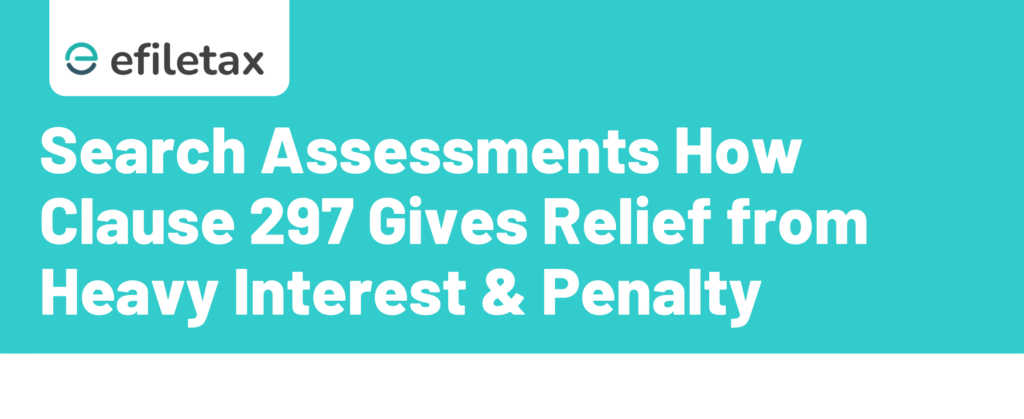
Introduction
Relief from Interest and Penalty is a critical topic in income tax search assessments. Clause 297 of the Income Tax Bill, 2025, aims to streamline and update relief provisions compared to the older Section 158BF of the Income-tax Act, 1961. Let’s break it down for easy understanding.
Clause 297 vs. Section 158BF: A Quick Snapshot
| Aspect | Section 158BF (1961 Act) | Clause 297 (2025 Bill) |
|---|---|---|
| Applicable To | Block assessments after search | Search assessments under the new Bill |
| Interest Relief | Specific waiver conditions for interest | Broader scope for interest relief |
| Penalty Relief | Linked with satisfactory explanation | Explicitly covers genuine disclosure |
| Discretion | AO had limited scope | Greater power to waive interest & penalty |
| Legal Reference | Part of Chapter XIV-B | Inbuilt under Chapter XX of new Bill |
Key Highlights of Clause 297
- Broader Relief: Compared to Section 158BF, Clause 297 allows more leeway for taxpayers who make voluntary and true disclosures during search proceedings.
- Better Clarity: The language is clearer — reducing unnecessary litigation over waiver conditions.
- AO’s Powers: Assessing Officers now have explicit authority to grant partial or full waiver on both interest and penalty if the taxpayer proves genuine intent.
- Alignment with Faceless Regime: Supports quick decision-making under the faceless assessment and appeal processes.
Conditions to Claim Relief under Clause 297
To avail benefits:
- Full and true disclosure of undisclosed income during search.
- Payment of taxes and interest as per assessment.
- No concealment or misrepresentation in follow-up proceedings.
Official Reference
This update comes from the Income Tax Bill, 2025 (Draft Bill, 622 pages). The older provision, Section 158BF, is under Chapter XIV-B of the Income-tax Act, 1961.
Tip: Always refer to the latest CBDT circulars for updated implementation timelines.
Expert View
Efiletax Tip:
Taxpayers undergoing search assessments should proactively disclose unreported income and clear dues swiftly to claim full benefit under Clause 297 — reducing both interest and penalty costs.
FAQs on Relief from Interest and Penalty
Q1: Is Clause 297 mandatory for all searches?
No. Relief is conditional upon taxpayer’s cooperation and full disclosure.
Q2: Can I appeal if the AO denies relief?
Yes. Orders under Clause 297 can be contested before the Income Tax Appellate Tribunal (ITAT).
Q3: Where can I check official notifications?
Visit www.incometax.gov.in for updates.
Conclusion
Clause 297 offers a practical pathway to reduce interest and penalty in search assessments, encouraging honest disclosures and faster case closures.
Need help with search assessment compliance?
👉 Connect with Efiletax Experts
Summary
Clause 297 of the Income Tax Bill, 2025 provides wider relief from interest and penalty in search assessments, improving upon Section 158BF of the 1961 Act. It rewards voluntary disclosure and genuine compliance, aligning with faceless assessment goals.